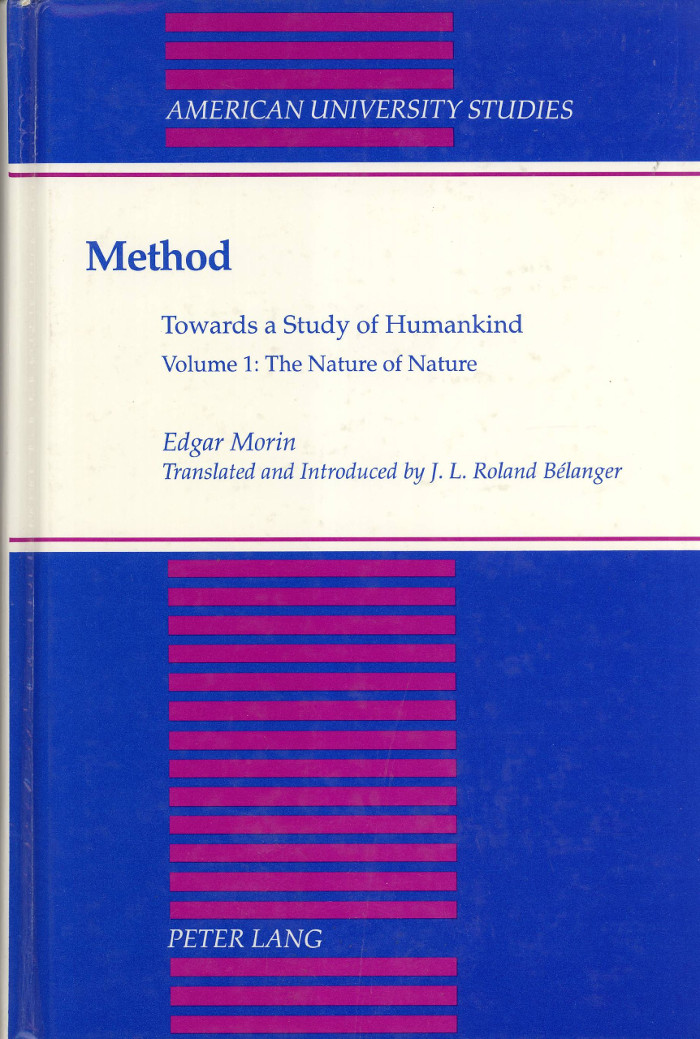Georges Canguilhem: A Vital Rationalist: Selected Writings (1994)
Filed under book | Tags: · biology, epistemology, history of science, knowledge, life, medicine, philosophy, physiology, science

“Georges Canguilhem is one of France’s leading philosophers and historians of science. Trained as both a medical doctor and a philosopher, Canguilhem overlapped these practices to demonstrate that there could be no epistemology without concrete study of the actual development of the sciences and no worthwhile history of science without a philosophical understanding of the conceptual basis of all knowledge.
A Vital Rationalist brings together some of Canguilhem’s most important writings, including excerpts from previously unpublished manuscripts. Organized around the major themes and problems that have preoccupied Canguilhem throughout his intellectual career, this collection allows readers both familiar and unfamiliar with Canguilhem’s work access to a vast array of conceptual and concrete meditations on epistemology, methodology, science, and history. Although Canguilhem is a demanding writer, Delaporte succeeds in identifying the main lines of his thought with unrivaled clarity and maps out the complex and crucial place this thinker holds in the history of twentieth-century French thought.”
Edited by François Delaporte
Translated by Arthur Goldhammer
Introduction by Paul Rabinow
Critical bibliography by Camille Limoges
Publisher Zone Books, New York, 1994
This edition, 2000
ISBN 9780942299731
481 pages
Reviews: Levin (The Journal of the American Medical Association, 1994), Keller (Bulletin of the History of Medicine, 1996), Sutton (The British Journal for the History of Science, 1997).
PDF (7 MB)
Comment (0)Cultural Anthropology 25(4): Multispecies Ethnography (2010)
Filed under journal | Tags: · anthropology, biology, biopolitics, ecology, ethnography, multispecies, nature
“A new genre of writing and mode of research has arrived on the anthropological stage: multispecies ethnography. Creatures previously appearing on the margins of anthropology—as part of the landscape, as food for humans, as symbols—have been pressed into the foreground in recent ethnographies. Animals, plants, fungi, and microbes once confined in anthropological accounts to the realm of zoe or “bare life”—that which is killable—have started to appear alongside humans in the realm of bios, with legibly biographical and political lives. Amid apocalyptic tales about environmental destruction, anthropologists are beginning to find modest examples of biocultural hope—writing of insect love, of delectable mushrooms that flourish in the aftermath of ecological destruction, and of microbial cultures enlivening the politics and value of food.
Multispecies ethnographers are studying the host of organisms whose lives and deaths are linked to human social worlds. A project allied with Eduardo Kohn’s “anthropology of life”—“an anthropology that is not just confined to the human but is concerned with the effects of our entanglements with other kinds of living selves”—multispecies ethnography centers on how a multitude of organisms’ livelihoods shape and are shaped by political, economic, and cultural forces. Such ethnography also follows Susan Leigh Star, who suggests “it is both more analytically interesting and more politically just to begin with the question, cui bono? than to begin with a celebration of the fact of human/non-human mingling”.” (from the Introduction)
Edited by Eben Kirksey and Stefan Helmreich, with contributions by Eva Hayward, Agustin Fuentes, Celia Lowe, and Jake Kosek.
PDF (updated on 2015-2-13)
Additional material (journal website)
Edgar Morin: Method, vol. 1: The Nature of Nature (1977–) [PT, EN, ES]
Filed under book | Tags: · anthropology, being, biology, chaos, complexity, cybernetics, epistemology, event, generativity, human, information theory, knowledge, machine, methodology, nature, organization, physics, politics, recursion, self, sociology, systems theory

“Method: The Nature of Nature is the first of several volumes exposing Edgar Morin’s general systems view on life and society. The present volume maintains that the organization of all life and society necessitates the simultaneous interplay of order and disorder. All systems, physical, biological, social, political and informational, incessantly reshape part and whole through feedback, thereby generating increasingly complex systems. For continued evolution, these simultaneously complementary, concurrent, and antagonistic systems require a priority of love over truth, of subject over object, of Sy-bernetics over cybernetics.”
First published in French as La Méthode, t. 1: La Nature de la nature, 1977.
English edition
Translated and Introduced by J.L. Roland Bélanger
Publisher Peter Lang, 1992
ISBN 0820418781
435 pages
Interview with Morin by his translator Ana Sánchez, 2011
Publisher (EN)
WorldCat (EN)
O método 1. A natureza da natureza (Portuguese, trans. Maria Gabriela de Bragança, 2nd ed., c1987, 12 MB)
Method, 1: The Nature of Nature (English, trans. J.L. Roland Bélanger, 1992, 17 MB)
El método 1. La naturaleza de la naturaleza (Spanish, trans. Ana Sánchez and Dora Sánchez García, 2001, 4 MB)


